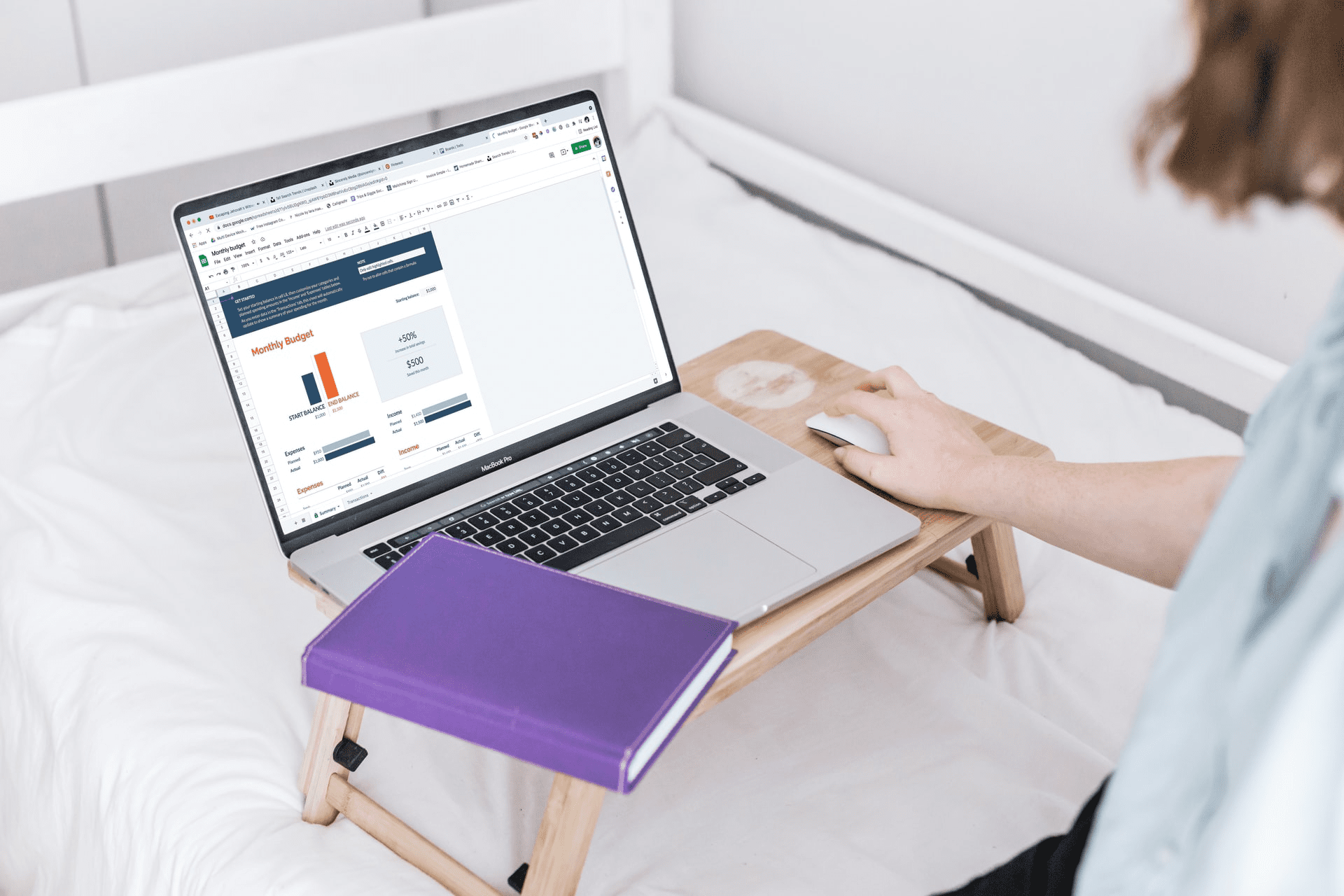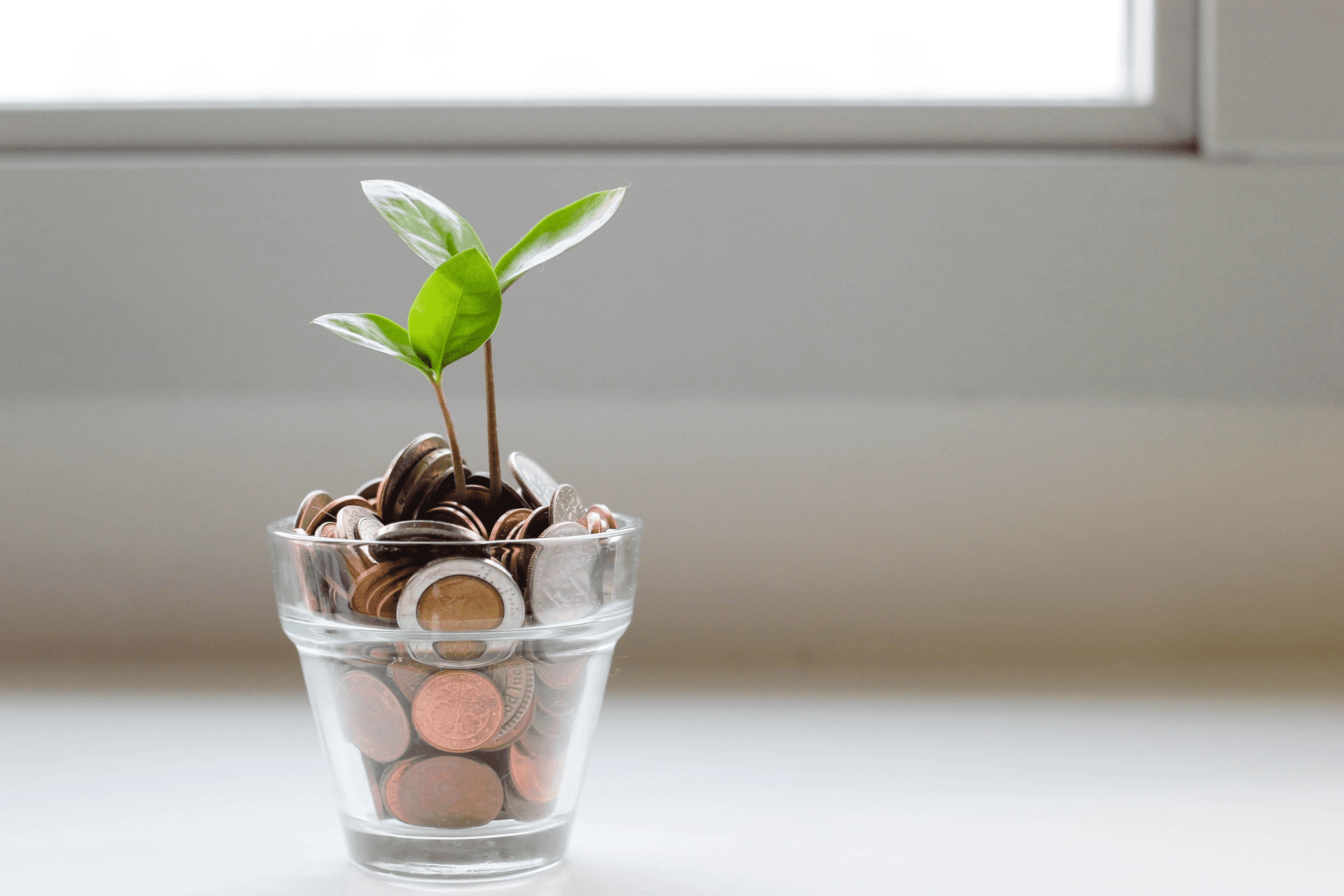Last updated Mar. 12, 2023 by Peter Jakes
Believe it or not, the most formative period in your life is in your twenties. Every financial decision you make will have a long-term influence on your finances. Therefore, making sensible money decisions and developing good money habits at this stage is crucial to your long-term financial success.
When looking for ideal money habits to imbibe in your 20s, consider those that help you achieve the lifestyle you desire. This includes your long-term financial stability, generating passive income, and attaining good retirement goals.
Here are 15 money habits to learn in your 20s, to help you achieve your financial objectives and independence early in life.
1. Establish Financial Goals and Plans
When it comes to setting the foundation for a stable financial future, you can never be too early. The perfect time to get started is in your 20s. Getting these goals achieved in your twenties will make the transition to the next chapter of your life smoother.
Here are some financial goals you should aim to accomplish before your 30th birthday.
- Invest in Your Personal Growth: Making your growth investment is perhaps the most important goal you should prioritize in your 20s. Investing in yourself is a necessary aspect of life. This personal development could be obtaining professional certification or a master’s degree.
Take advantage of opportunities to expand your expertise, life experiences, and human capital. If you don’t invest in yourself now, it’ll be more challenging to do so later.
- Begin repaying your debts: The average personal debt in the United States — not counting mortgage debt — is $23,325, according to Northwestern Mutual’s 2021 Planning and Progress survey. Many people say their ability to attain other financial goals has been hampered by their high debt levels, which account for one-third of their monthly budgets.
Indeed, 78% of Americans believe that debt has harmed their ability to achieve long-term financial security. Whether it’s for education loans, a credit card, or a new automobile, you should start controlling your debt as soon as possible.
Make sure your credit score is good:
Maintaining a solid credit score while still in your twenties will benefit you. If you improve your credit score, you can benefit from cheaper interest rates, more considerable credit limits, and lower premiums.
Consequently, always pay your debts on time and keep your balances low. Your credit usage ratio should not exceed 30% as a general guideline. However, if you desire a good credit score, more financial counselors are now advising against going beyond 10%.
Start thinking about retirement:
Pensions, which provide a consistent income until retirement, are less popular among Millennials. In fact, in 2020, just 28% of workers working for companies with 500 or more employees were registered in a pension plan.
Don’t fall into this category. Set up a retirement fund, whether a 401(k) via your workplace, an HSA, a Roth IRA, etc. Then set away 10 to 15% of your earnings each month, or as much as you can while still meeting your living expenses and other savings goals. Start saving for retirement early, to take advantage of compound interest.
- Become acquainted with the investment process: When people start 401(k) accounts at work, they often receive their first taste of investing. There are, however, other methods to start investing in your early twenties.
11 Websites where you can make 100 a Day Working From Home

2. Create a budget and keep track of it
Budgeting is necessary and one critical part of 15 money habits to learn in your 20s.
However, budgeting does not have to be complicated. If you don’t know how to create a budget, these six essential steps will help you get started.
Step 1: Calculate your monthly revenue.
Arrange all your sources of income together in one sheet. Then, determine your monthly take-home pay after taxes.
Step 2: Keep track of your monthly expenses and classify them.
Keep it straightforward. Begin with the entire costs from the previous month. Gather all your invoices and receipts to determine how much you spend each month.
Make sense of your expenditure by breaking it down into categories. Living expenditures, transportation, subscriptions (such as Spotify or Netflix), food, medical, debt payments, and entertainment are just a few examples. This expense list assists in identifying locations where you’re spending money unnecessarily.
Step 3: Make a goal.
Getting your finances in order is a terrific goal, but it’s also necessary to aim for something specific. This compass approach encourages us to be meticulous and regular in our budgeting.
How to make money really fast (in different ways)
In determining the 15 money habits to learn in your 20s, people often ask? What if I don’t have a specific budget aim in mind? Check out this article on How to make a budget that saves your money daily.
Creating an emergency reserve for unanticipated costs is an excellent first objective.
Other possible objectives include:
- Short-term goals include saving for a vacation or a new couch.
- Medium-term goals: automobile savings and debt elimination.
- Long-term goals include retirement planning and mortgage repayment.
Step 4: Create a financial plan.
Begin by comparing your monthly costs to your net monthly revenue. How much flexibility do you have? What are your objectives? What areas of your spending can you improve? Establish ideal budget targets for each purpose. Be truthful to yourself and your way of life. For example, include going out for dinners or drinks with pals in your budget.
Do you find this process exhausting? That’s OK. Several tools are available to help you develop and maintain your perfect budget.
How to Make a Budget that Works, for instance, is an excellent article that’ll teach you about your spending patterns. Each month, you’ll create a budget and a spending objective for each area. Get an app that tracks your spending by connecting to your bank accounts. You’ll get notifications if you go over your category limit. It will also teach you tips to know about your spending habits over time to build a budget more correctly.
Step 5: Repeat the process.
Remember that our spending patterns and income fluctuate. Make the necessary adjustments to your budget. Also, be sure that your budget is manageable. If you’re having trouble staying inside that framework, modify it. Be truthful to yourself.
The 50-30-20 Method of Budgeting
For budgeting rookies, the 50-30-20 technique is an excellent place to start. Keep spending categories simple. Split your budget into three categories: 50% for living expenditures and necessities (such as rent, groceries, and utilities). 30% for flexible lifestyle spending (such as entertainment, dining out, and vacation). Lastly, 20% for your financial objectives (i.e., savings, debt payments, investments).
Rather than sacrificing your social life, the 50-30-20 Rule allocates 30% of your budget to discretionary spending.

3. Make debt repayment a priority
Student loan debt is perhaps the most essential when determining the 15 money habits to learn in your 20s. The loan is the most significant percentage of money due among 18- to 24-year-olds, followed by credit card debt. Half of the persons under 30 with bachelor’s degrees owe money on student loans. The longer they study, the more money they owe on average.
Tips to Repay Your Debts Faster in your 20s.
- Decide that paying off debt is worthwhile.
- Make a list of long-term financial goals you can achieve with less debt.
- Don’t strive to “keep up” with others’ lives; instead, live within your means.
- Use a budget to keep track of your expenses.
- Try a “spend-free” month.
- Look after your future self: Plan forward, not simply in the present.
- Save! Save!! Save!!!
- Become knowledgeable and wary of credit cards.
4. Begin a side business/hustle
There are many side hustles that are fantastic sources of personal development and additional revenue.
In your leisure time, hustle. You probably balanced attending school with working a part-time job during the evenings and weekends while a student. In other words, you worked a full-time job as a student while also working part-time.
There’s no reason you can’t continue now that you’re in the workforce. Even if it’s only 5 to 10 hours a week, supplemental part-time employment can help you balance your full-time work. In addition, this might assist you in making significant progress toward your financial objectives.
Here’s a list of some of the most profitable side hustles that can be an excellent additional source of income in your twenties.
- Blogging
- YouTube
- Photographic Resources
- Copywriting and ghostwriting
- Freelance writing
- Programming and coding
- Airbnb
- Dropshipping
- Online assistance
- Social media marketing and influencing

5. Save money
You must develop the habit of saving money as part of the 15 money habits to learn in your 20s. Set away a significant quantity of money every month. Create a savings account to deposit your monthly savings.
It would be best if you also draw a savings goal. A savings goal gives you good motivation to save. Why are you putting money aside? Is it for a new automobile or a new house, or investment purposes? Having a reason for saving helps you achieve your goals faster.
Also, when saving, keep track of your progress.
How To Budget Your Money In 9 (very Simple) Steps
6. Begin investigating
Digit or the Qapital app are two examples of apps that allow you to invest in publicly listed firms. Because many high-performing equities can become pricey, we advocate paying off debt first before investing. Financial experts can assist you in getting started if you’re not sure where to start. In addition, they may assist you in navigating low- to high-risk investments to maximize your investment returns. Also, find other good investing apps here.
7. Have many sources of income
The wealthiest people don’t make their money from a single source. That’s the reason they’re so affluent in the first place. It’s wise not to rely just on one source of income.
This financial move is not simply to create additional money, but it also means you’re no longer exclusively reliant on one source of income in an emergency. Start exploring different sources of income to supplement your current work.
This goal might be as simple as learning to invest on the side or as complex as starting a new business.

8. Pay Attention to Your Emergency Fund
Nobody plans for their car to break down or a hospital bill to arrive, but they do. Spend some time putting up an emergency fund, and make sure you have at least 3-6 months’ worth of take-home pay saved. You may wish to save extra money depending on your circumstances.
For example, if you own a home, you may want to save eight months’ worth of income. However, four or five months’ worth of savings would be sufficient if you’re single and rent. Paying attention to your emergency fund is an underrated tip when knowing the 15 money habits to learn in your 20s. So, don’t overlook it.
How To Make $1000 A Month: 53 Ways To Make Extra Money in 2022
9. Improve your credit score
A strong credit score is essential for getting the most outstanding financial goods, such as credit cards and loans.
Furthermore, the higher your credit score, the better conditions you’ll be offered, potentially saving you hundreds of dollars in interest over time. (We always recommend you pay your balance on time and in full each month).
One of the drawbacks of developing credit is that you need a credit history to qualify for a credit card. Also, preparing for a card without any credit history is complex.
One alternative is to become an authorized user on a credit card belonging to a family member or acquaintance. You might also apply for a secured credit card, which functions similarly to a standard credit card but requires a deposit (usually $200).
Experian Boost is one of the solutions for improving your credit score without using a credit card. This free option allows you to attach positive payment history for monthly utility, and phone. This also includes Netflix bills to your credit report, improving your credit score.
Once you have a credit card, the simplest method to raise your credit score is to use it frequently. Be conscious of your spending habits. Pay at least the minimum amount due on time each month, and produce whenever feasible.

10. Open a Retirement Savings Account
Opening a retirement account is a good money habit to learn in your 20s. Get a retirement account and make yearly contributions. You can also postpone a portion of your wages each pay period.
A 401(k) is an employer-sponsored retirement plan where employees choose to contribute a percentage of their earnings to a retirement account. A financial institution invests the funds in the account. The company may additionally match an employee’s contribution up to a certain percentage of their wages in several situations.
An employer, for example, could match half of an employee’s contributions up to a specified sum or percentage of the employee’s compensation. You can set up a 401(k) where most companies often pay 50% of an employee’s first 6% of contributions—or 3%.
However, to qualify for the 3 percent match, the employee may be forced to pay the complete 6%. Since the employer is depositing free money, it’s critical to contribute at least the minimum amount required to be eligible for the company match.
See the Steps to take 10 Years Before Retirement
11. Pretend to Be a Student for as Long as Possible
The 15 money habits of learning in your 20s should come at a young age. Hence, you’re at a peculiar age when living like a broke student is socially acceptable. Maintain this broke student lifestyle even after you earn your first job and a few promotions as a favor to yourself.
Keep living with your housemates as long as possible. Continue to prepare dinner at home rather than eat out. Dress in thrift or cheap store clothing. Follow the steps you followed when you were a poor student with no income.
Check this 10 Best Tax Software of 2022(For Tax Professionals)
12. Make Wise Purchases
Please list everything you want to buy and stick to it before shopping. It’s an excellent strategy to keep you from purchasing on impulse. Making a list prevents impulsive purchases and allows you to save money and time when shopping.
Before you go shopping, consider whether you need it. Always draw a priority list.
When you go shopping, look for the most incredible bargain you can find, so you can save more money.

13. Get Rid of Your Bad Money Habits
Before you can build improved money habits, you must first eliminate some negative ones.
It would be best if you immediately quit the following harmful money habits:
- Impulse purchases
- Using credit cards exclusively
- Spending as much as you earn or spending more than you earn
- Not preparing for an emergency
- Waiting till you “have more money” to save or invest
- Relying on loans to pay your bills
- Not taking control of your income streams.
- Saving without a goal
- Dipping into your savings
14. Strike a good balance
While imbibing these 15 money habits to learn in your 20s, strike a balance between enjoyment and financial habits as you cultivate them.
There should be a balance between your financial ambitions and your life’s enjoyment. Relax when you need to. You don’t have to be a miser or suffer to reach your financial objectives. It would be best if you found a happy medium.
15. Examine your financial situation.
You can’t just forget about these 15 money habits to learn in your 20s now that you’ve learned about them.
Another money habit you should cultivate is revisiting your objectives and plans. This will determine whether they’re still relevant or if anything needs to be changed. Never forget to celebrate your milestones too.
Check-in on your budget now and again to see if any changes are required.

Bottom Line
Making wise financial decisions in your twenties can help you achieve long-term financial success. If you follow these “15 money habits to learn in your 20s” we’ve outlined above, you will improve your credit score. You’ll also be debt-free, and save money for retirement and other significant life events.
Check out our other articles!







